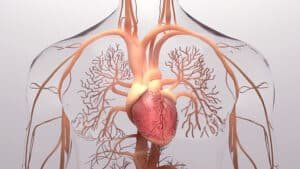By Deborah Jeanne Sergeant
 We can’t do anything about the genes our parents gave us. But even if those include heart problems, you can mitigate your risk for heart disease by taking these steps:
We can’t do anything about the genes our parents gave us. But even if those include heart problems, you can mitigate your risk for heart disease by taking these steps:
Tips from Nikhil Joshi, cardiologist with Crouse Medical Practice:
1. “For anyone especially those who have a family history, one important thing is to see a physician or have a physical on a regular basis. A lot of people in their 20s and 30s think they don’t need to see a doctor regularly but we’re seeing developing heart disease at younger ages. Have some screening like cholesterol checks.
2. “Stress. It has a big correlation with heart disease. I don’t have a treatment for stress but understand it does play a big role and there are things in your life that are creating more stress. Exercise is great and important but also engage in meditation and yoga. These have an underappreciated benefit for stress management as well.
Tips from David Bass, cardiologist with Oswego Health:

3. “Heart disease is the No. 1 killer worldwide and it definitely disproportionately affects older people, diabetics, those with high blood pressure and high cholesterol and a family history of heart disease. Folks should be mindful of these conditions. It’s a leading cause of mortality in people with chronic kidney disease and those with lupus. That’s why you need a healthy diet with limited processed foods like those containing high fructose corn syrup, and high sodium. You want foods with fewer ingredients. Definitely want to avoid trans-fats.
4. “No cigarettes or overindulgence in alcohol. More attention is being paid to marijuana. We used to not know if it were harmful to the heart but now we know it’s harmful. It definitely does accelerate the progression of plaque buildup and heart rhythm disorders and prevalence of stroke in young, healthy people. There’s not a lot of scientific data on effects of vaping on heart disease but it’s not good for your lungs. Vaping isn’t a great method of achieving smoking cessation. Nicotine replacement therapy and other forms is a lot safer, like patches or gum or lozenges. I don’t like vaping for recreation as it can damage pulmonary health. I won’t be surprised if the scientific community discovers it’s bad for your heart.”
Tips from Alexis Quinn, public health educator with Creating Healthy Schools and Communities, part of the Onondaga County Health Department:
5. “Exercise regularly. The CDC recommends that you have 150 minutes a week of moderate aerobic activity like walking or biking or tennis. A 30-minute walk every day for five days. Or you could do 75 minutes per week of more vigorous like running, swimming or soccer. It’s important on top of cardio to work on strengthening muscles with lifting weights or yoga.”
Learn CPR
It’s also vital to learn cardiopulmonary resuscitation, also known as CPR, to help save others.
The gold standard for CPR training is offered by the American Red Cross. Laymen may learn how to perform lifesaving CPR help sustain people until emergency medical care providers can arrive. To learn more about how you can find an official Red Cross CPR class, visit www.redcross.org/take-a-class. The Red Cross offers both online and in-person classes.

